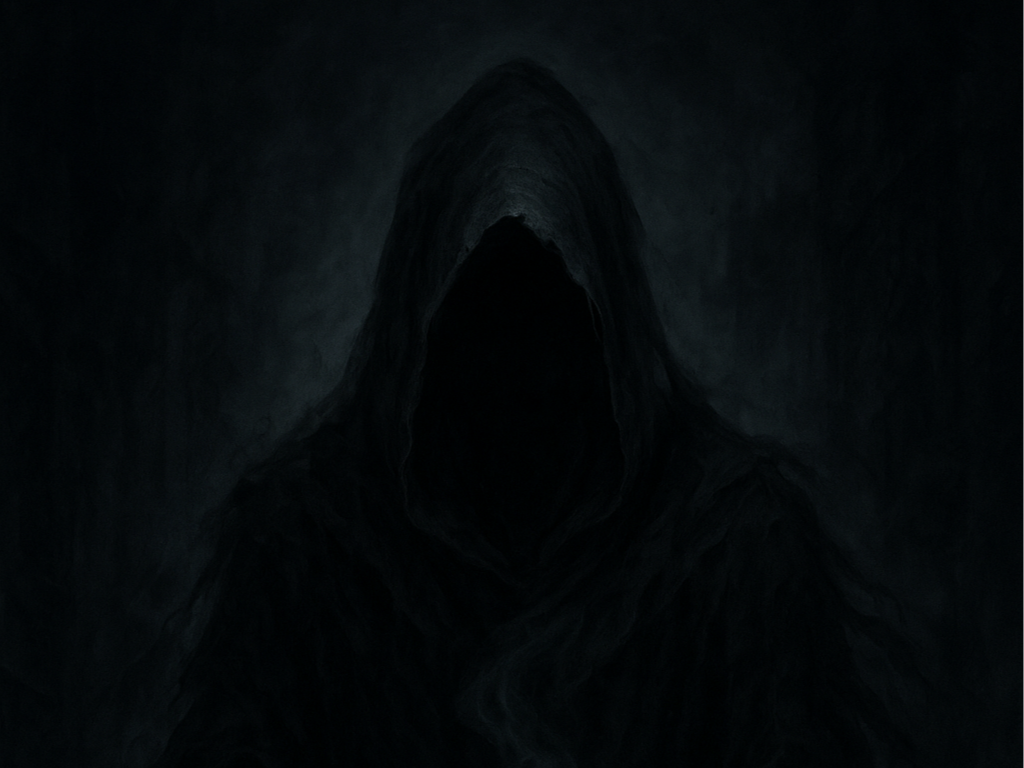At Sinister Coffee & Creamery, we know that some of the most powerful experiences can’t be seen, but rather ARE felt. It is this distinction that prompted the retelling of Phantom’s story. Read our take on the term Phantom, one of the paranormal world’s most extraordinary terms, its origins, and its relevance in the supernatural landscape.
Pulling Back the Mask on Phantom Pain, Paranormal Hauntings, Phantom Etymology, and the Perfect Dark Roast Coffee
A deep dive into phantoms: This blog post covers the science of phantom pain, chilling paranormal hauntings, the word's etymology, and our intense Phantom Dark Roast Coffee blend that's guaranteed to keep you awake!
Phantoms unpacked
The word phantom often illicits a wide range of emotions and conjecture. Is it a shadow that moves when there is no one there, the cold shiver that hits you in an empty hallway, or the quiet nagging suspicion that something you can not see is watching. Across centuries, people have described phantoms as experiences that exist just beyond the explainable. There is a fantastical element to them as how one percieves them can be fleeting, intangible, and yet undeniable in the moment.
Phantoms can be used to describe more than just haunting dark spaces. In medical terms, phantom pain is the very real sensation felt in a lost limb—burning, aching, or tingling in the absence of something that was once a part of you. The phenomenon was named in the 1800s by Civil War surgeon Silas Weir Mitchell, who documented the lingering experience of pain in wounded soldiers.
Origins of Phantom
Phantom comes through Latin (phantasma) from the Greek phantasma (φάντασμα), meaning “an apparition, a vision, an image that appears without substance.” Both draw from the root verb phainein (φαίνειν): “to bring to light, to make visible.”
In Greek and Roman ideology, phantasma was something that deceived the senses: shadows, dreams, or illusions. In mythology, phantasmata were divine visions or apparitions sent by gods. One might say the name Phantom was created as an attempt to connect non-visible and visible experiences.
Phantom, gives meaning to the unseeable yet deeply felt. It describes the space where spirit, sensation, and the supernatural converge.
How is the term Phantom used in the Paranormal World?
In the realm of the paranormal, the term phantom is often chosen precisely because it leaves room for the unknown. A phantom is a presence you sense—through chills, footsteps, or a fleeting shadow—that may not reveal itself fully. Unlike a ghost, which suggests identity, or a spirit, which suggests intent, phantom captures the raw experience: real, but without explanation.
Investigating “Unknown” Phenomenon
Investigators may use the term phantom to acknowledges different unexplained aspects of the paranormal experience. Identifying a Phantom through a sensory experience validates the person who’s describing the phenomenon while admitting that some truths aren’t identifiable through research mediums. Phantoms exist in an in between place, a place perhaps that could use more defining through acknowledgement, research and of course investigation.
Do you think you have experienced a Phantom?
Share Your Phantom Story
We created our Phantom Dark Roast to honor the unseen—the bold, the shadowy, and the unforgettable. Brew a cup, embrace the mystery, and let the darkness reveal its flavor. A Haunting Awaits You..
When the night grows still, phantoms linger. Phantom Dark Roast is a bold, mysterious, and unforgettable take on Dark Roast Coffee. It’s a reminder that some things are best experienced in the shadows.
Ready to take your obsession a step deeper? Read The Dark Side Coffee Guide, where we’re all in on the darker side of coffee roast perfection. The Dark Side is all about taking it one haunting sip at a time. ☕️👻




